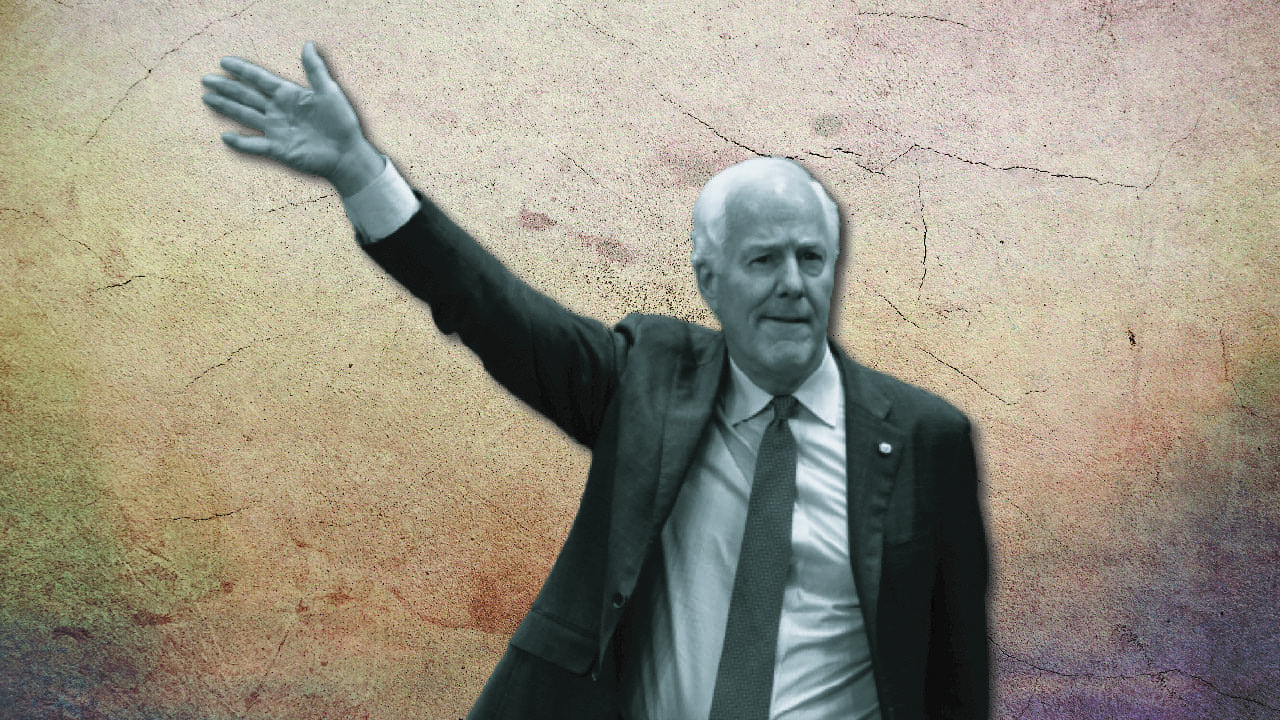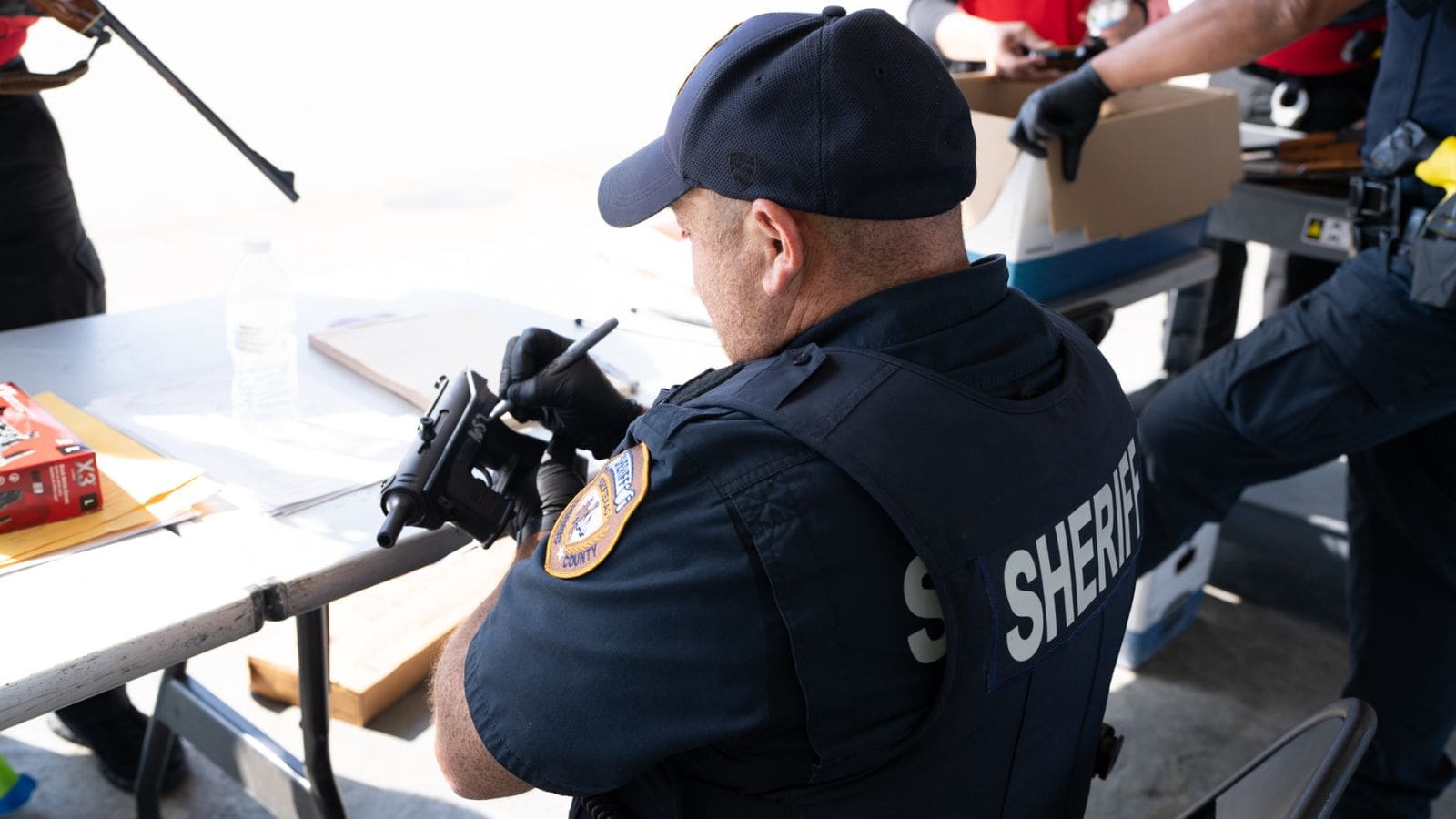Conservative voters are a force to be reckoned with—they demand results. Establishment Republicans tend to understand this, as they often cherry pick one bill from each major issue set that they allow to pass for use during reelection season. By passing one bill as cover while killing the others, they are able to gain election fodder while simultaneously appeasing their liberal Democrat allies and remain in power.
|
On the Second Amendment, the “chosen bill” of liberal House leadership was licensed open carry.
In contrast to House leadership, staunchly conservative State Rep. Jonathan Stickland (R-Bedford) pushed for a vote on “constitutional carry” – the right to carry a handgun openly or concealed without a government license. When House leadership stonewalled Stickland’s requests for a hearing on his bill, he promised to offer an amendment to any gun rights bill that reached the floor in order to force a public vote on constitutional carry.
However, when the House version of licensed open carry reached the floor, Speaker Joe Straus openly and defiantly cast aside the rules of procedure and refused to even recognize Stickland on his amendment, alleging that it was not germane to the bill. The tactic denied Stickland and other House members the opportunity to challenge Straus’s ruling, or their right to an explanation of the chair’s ruling.
By contrast, State Rep. Allen Fletcher (R-Cypress), the House author of campus carry, was recognized to offer an amendment to the licensed open carry bill that contained his campus carry bill in its entirety. Democrats and liberal Republicans threatened to break quorum and scuttle the entire bill if the amendment was successfully added. Faced with such threats, Fletcher pulled his amendment down rather than risk the doom of the licensed open carry altogether.
When the bill came up for third reading, conservative Republicans formed an alliance with a minority of Democrats to pass an amendment addressing 4th Amendment concerns with the licensed open carry. Though conservative State Rep. Matt Rinaldi (R–Irving) had been denied recognition on second reading, he teamed up with State Rep. Harold Dutton (D–Houston) to offer an amendment critics called “back door constitutional carry.”
Citing potential for racial profiling and selective enforcement, the amendment statutorily reinforced existing 4th Amendment protections by stipulating police would be required to have probable cause to stop an open carrying individual. Asking for their license due to the mere presence of a handgun would be prohibited. Other allowable causes to stop an armed citizen under existing law, such as suspicious activity, would still apply.
“When the amendment came on the bill, we were sitting in the House gallery,” said Alice Tripp of the TSRA. “We thought this was fine. Unnecessary, but great if they wanted to tack it on. It didn’t make much of a difference to us.”
Unfortunately the same attitude didn’t echo into the Senate chamber. When the licensed open carry bill made its way to the Senate it was referred to the State Affairs Committee chaired by State Sen. Joan Huffman (R-Houston). She forcefully told State Sen. Craig Estes (R-Wichita Falls) to strip the amendment from the bill or she would refuse to even grant it a hearing. He complied, and the Dutton-Rinaldi amendment was pulled from the bill.
However, when the measure came to the Senate floor, State Sen. Don Huffines (R-Dallas) offered a similar amendment to reattach the provision. Debate over the measure lasted the entire afternoon as Huffman sought to strip the amendment. When it became clear that a bipartisan coalition of Senators supported the amendment reiterating 4th Amendment protections, Huffman abandoned her Republican colleagues and joined the other side in opposition to the entire open carry law. In what critics viewed as a petulant tantrum, Huffman attempted to kill the bill by attaching politically toxic felony penalties for those carrying a handgun without a license.
“Under Huffman’s amendment, carrying a handgun without a license would have been a second degree felony,” said Tony McDonald, General Counsel to Empower Texans. “That’s the same punishment if a person illegally carrying their gun kidnaps a person, sexually abuses them, and releases them.”
With Huffman jeopardizing the bill, the TSRA pushed Huffines to withdraw his amendment.
“We just wanted open carry to pass and this amendment jeopardized it,” said Tripp. “We didn’t think the amendment was good, didn’t think it was bad, but if Huffman wanted it off we were fine with that.”
However, Huffines was supported by fellow conservatives as well as minority Democrats and refused to back down.
“As we expand Second Amendment liberty with HB 910, we must remain mindful of the civil liberties safeguarded by the Fourth Amendment,” said Huffines. “Texans who choose to carry openly once this bill is signed by Governor Abbott should not be suspect, and should not be detained, delayed, or searched simply because they choose to exercise their Second Amendment right. We have a duty to protect the civil liberties of Texans who choose to open carry.”
Ultimately, Huffines was successful in stopping Huffman’s attacks. He passed his amendment and stopped Huffman’s attempt to destroy the legislation. Meanwhile, Huffman defied her Republican colleagues, casting the lone Republican vote against open carry in the Senate.
But as the licensed open carry bill headed back to the House, liberal police groups that had already opposed the open carry legislation took exception to the Dutton-Rinaldi-Huffines amendments. Their opposition intensified and complicated issues for passage in the House, where the legislation would have to return and be re-approved due to minor differences between the two amendments.





